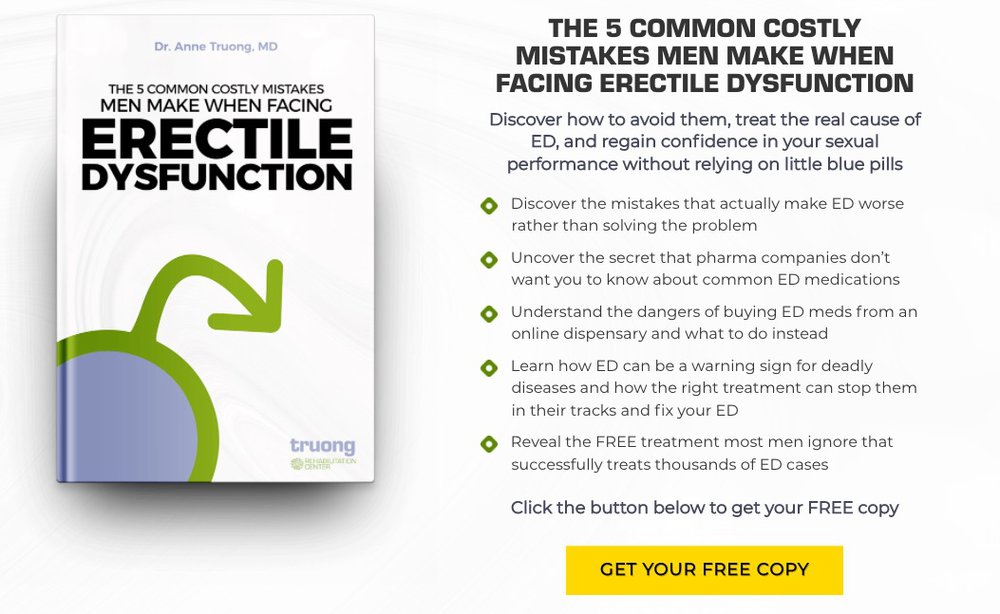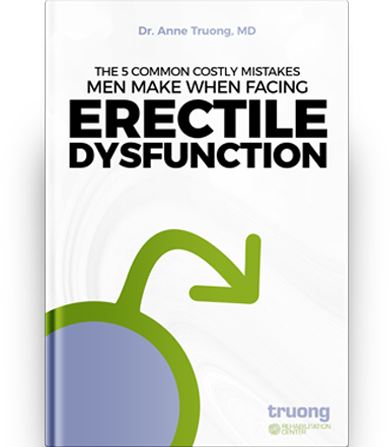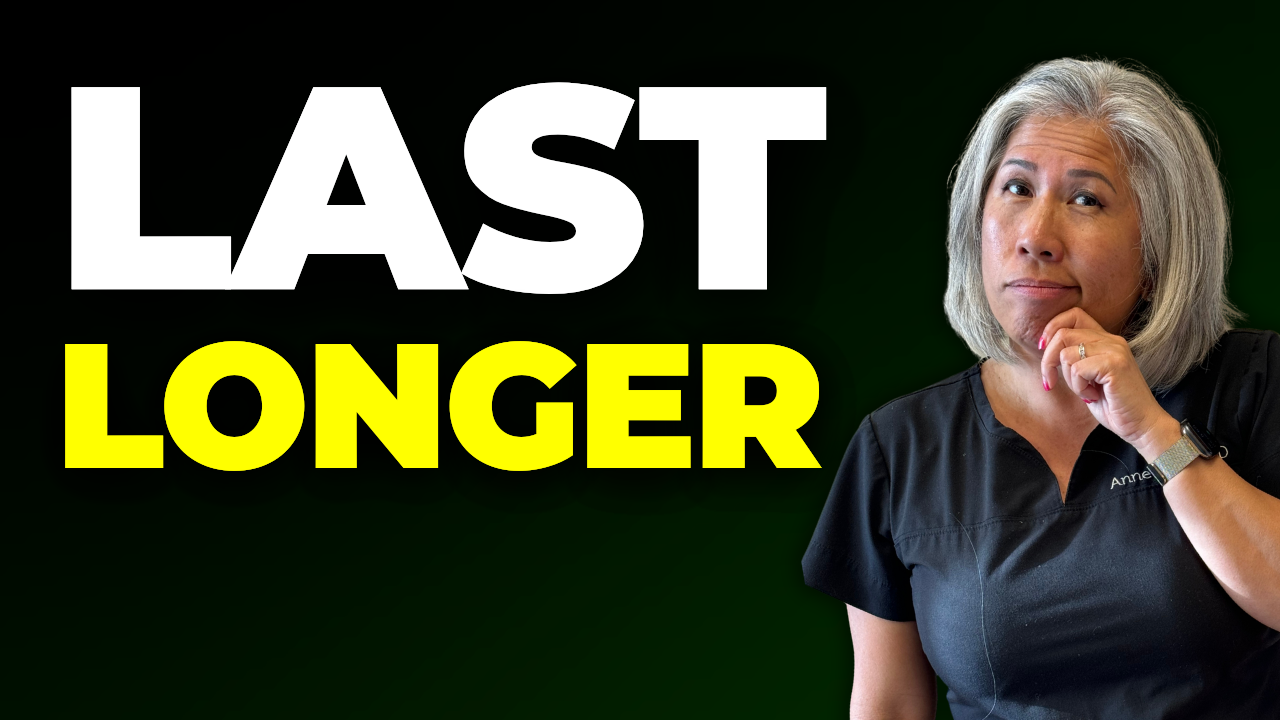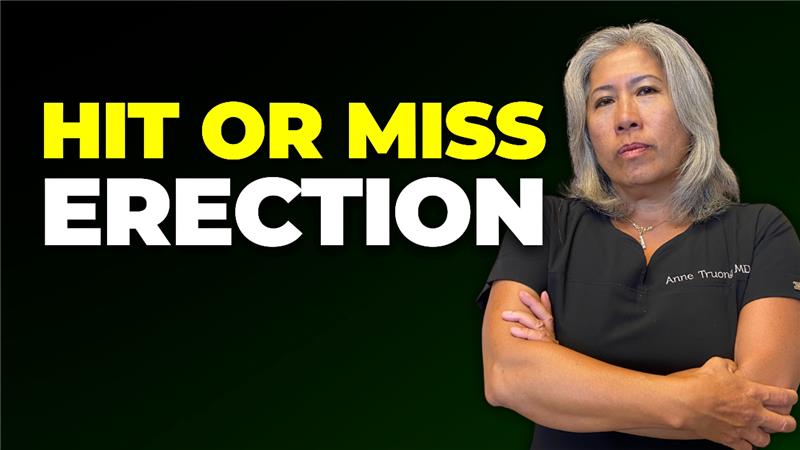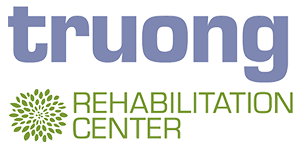In this episode, with Dr. Jackie Kilraine, Neuro-biofeedback expert, we'll talk about the signs of an over-anxious brain and how to biohack your way back to balance.
Your brain is the most powerful organ in your body, but it can sometimes work against you. If you've ever felt nervous in a high-pressure situation or struggled to calm down before bed, you know it's like to have an "over-anxious" brain. In men, it can also lead to erectile dysfunction.
We'll explain the strategies for biohacking your brain to override the imbalance, restore balance, and keep your mind and body balanced so that you can achieve maximal sexual benefits.
Biohack your Brain Episode Contents
- Episode Video
- Introducing Jackie Kilraine
- How Your Brain Becomes Dysfunctional
- Getting Into The Right State Of Mind
- Starting A Gratitude Journal To Biohack Your Brain
- Neurobiofeedback
- Retraining Your Brain
- About our Guest Jackie Kilraine
- Episode Links and Resources
Biohack your Brain Episode Video
Introducing Jackie Kilraine
Anne: I am so excited today. Do you want to know how to biohack your brain to sexual arousal and treat erectile dysfunction? Well, today I'm with Dr. Jackie Kilraine. She is a chiropractor of 30 years experience, a bestselling author, and an expert in brain health and neurobiofeedback.
And today, we're going to talk about biohacking your brain to put you in a better state for all type of condition, chronic pain as well as for sexuality. So tell us about how you got into neurobiofeedback?
Jackie Kilraine: Okay, great. I started doing biohacking my brain, really, when I actually heard a podcast. I heard a podcast and I heard someone, I heard an anesthesiologist say we had to turn down the volume of the pain in the brain. That's where I said, "Ah."
And I walked into my office that very next day, opened up a periodical, and there was an ad for neurofeedback from a doctor that I had known, that I had taken a year long course with. I signed up for it started doing it that day. I started a little of the brain work before that. My husband was diagnosed with stage 4 cancer. We had two kids in middle school, we had one in college, and I had to figure out how to cope with that.
I started keeping a gratitude journal, only because I felt I had to find something to be great for or I just wasn't going to be able to go on. And that really helped me through that. The gratitude really helped me see more of the positive in just the day to day, helped me to enjoy the moments that we had, that we ended up having left.
Little did I know… I didn't know the science of gratitude. I didn't know all the studies behind gratitude. Didn't know how it can reduce your risk of heart disease and cancer and all these things, and how it can change the way you look at the world and the way you see things. I just started writing down three things every day that I was grateful for, that I was really grateful for, and I felt that. That's where I got started.
I started with the neurofeedback after I heard that podcast. I just think that was divine intervention for me. If I hadn't heard… It was a podcast on fibromyalgia, it's late at night. It's one of those doctor things that you do. You just lay in bed and you're still learning all the time. That stuck with me. And then the next day to come in and see that periodical. I called up the doctor. I said, "Hey, I got to have this in my practice." We went and got trained and I brought it back. The next weekend, just started doing it, so. And that was 10 years ago.
It's been my passion ever since. And it's funny because I didn't know I needed it, but I started doing neurofeedback when my husband had died. I was anxious, very anxious, really depressed. I was going to quit practice. Was going to take my kids out of school.
My brother-in-law said to me, "Why don't you just work one more year and then just go move out to California where your brother lives?" And I'm like, "Yeah, that's what I'm going to do. I'm going to take my two kids out of middle school. I'm going to leave my son in college. Going to move all the way across the coast and live by my brother who lives in a monastery." I mean, it didn't even make any sense, but that was how I was… I was just wanted to run away. I just couldn't even hardly function anymore.
And I started doing neurofeedback before I did it for my chronic pain patients, not thinking I needed it, because I was looking through my little lens of chronic pain, thinking they need this. I don't really need it. They need it.
But I needed it more than anybody. And now, my entire life… I can see the lens of my entire life. I see everything differently. Everything that I experience is different than my overthinking brain used to talk myself out of everything. And that's just because I'm a doctor and I'm so logical, I think, think, think. No, it's because you were fearful and you were anxious and you just didn't enjoy life. Now I just enjoy everything. I do what I want. It's just night and day. My life is night and day.
Anne: And thank goodness that you actually learned that pathway so that way you can show.
Jackie: Yeah.
How Your Brain Becomes Dysfunctional

Anne: your patient and others about how to really biohack the brain. And I'm really excited about… to find out about it. But let's talk about how did the brain get there in the first place? How did the brain become dysfunctional, that it become what you call an over anxious brain?
Jackie Kilraine: Yeah. Well, your brain's job is for you to survive. It's for you to get up the next day and live. It doesn't care if you're overthinking and you can't sleep. But it starts off… Some people start off with, if their mother was in a traumatic situation or an abusive situation, we have some survival genes. So everybody can start at a different level. So you can almost be born into that, where your genes are just there for survival.
And then your brain never forgets. Your brain remembers everything that happens to it, because it has to. It thinks it has to keep all those memories so you can survive.
So when you've had a car accident or you've had chronic pain, or you've had a death in the family or your mother dies or your spouse dies, or you lose a job or you're under a lot of stress, your brain just has to keep you on this hyper state of alert.
So it's always looking out for the threat. And then, we're not really running from tigers anymore. We're just not doing that. But we are in traffic and we're all in a hurry and we have… So the brain… It's the same thing to the brain, that that's stress, but it just keeps turning that volume up.
And it stays there unless you physically do something that the brain can understand… I don't need to keep being like this day in and day out. It's just going to repeat it, repeat it. You're going to wake up the same way until you can actually.
The Sympathetic State
Anne: So that state is called the sympathetic state, right?
Jackie: Yeah, exactly. Right.
Anne: Is that right? It does.
Jackie: Yeah.
Anne: So it's in the sympathetic state, which is a fight or flight state, which compared to the parasympathetic state, which is eat and breathe, is what I call.
Jackie: Yeah. Rest and digest.
Anne: The resting state.
Jackie: Yes.
Anne: Yeah. Eat and digest and breathe, because to be able to be in a sexual aroused state, you have to be in the parasympathetic state, for both men and women. As well. And so when you're saying that when the brain is overanxious, there's an imbalance of the sympathetic state at higher than the parasympathetic state.
Jackie: Yeah.
Anne: And it keep on going, going, going, going at that state. It doesn't really shut down.
Jackie: Yeah.
Anne: And the person doesn't really know it. Right?
Panic Related Disorders
Jackie Kilraine: Yeah. You don't know it. And you may not know why you're not enjoying sex, or you may not know why you may have an issue with it. You may not really even… Who thinks about, "It's my brain?" There's like a 30-70% people with panic-related disorders have some sexual dysfunction, have ED or have… or women who just don't enjoy sex or don't… And they think, "I just don't have an orgasm."
Well, you don't have an orgasm because your brain is really overthinking so much, and you never get into that relaxed state where a lot of physiological things take place for you to even experience that. So it's just that big vicious cycle that we… But sometimes if we look-
Anne: Right, but unfortunately, we don't have a map of our brain showing us that this is what's going on.
Jackie: Right.
Anne: And we don't feel the brainwaves in our brain telling us that. And I'll get to that part later, on how you can do actually quantitative assessment of how the brain is working, which is incredible. It's called neurobiofeedback, and she's been doing this for a past decade and is this expert in it.
Getting Into The Right State Of Mind
Anne: The thing that I wanted to tap is that the brain is where everything starts. It's actually the largest sexual organ, and where really the sexual response starts in the brain, not below the belt. It starts with the senses, with your eyes, with your vision, and the smell, the taste, and the sound, and then be in that mindset state. And that's where Dr. Kilraine help you with, to get your mind in that state of mind.
Jackie Kilraine: Yeah.
Anne: So that way, your mind can be receptive for it. So knowing that your brain can be overanxious, and you may not be knowing that you are overanxious. So what are the things that to look out for if you are in an overanxious state brain?
Jackie Kilraine: Yeah. Typically, if you're in an overanxious state in your brain, you're going to overthink everything. You're going to overthink things so much that you talk yourself out of everything, and you think it makes perfect sense.
You may be experiencing insomnia. You can lay your head down at night and you can't shut your brain off. It just keeps running through all the things I need to do tomorrow, or the things I should have done today. I used to have to keep my TV on so I had something to distract, which is not good for sleep, of course, something to distract my brain because my brain just kept running and running and running, and thinking and of all the… Or I'd wake up. I have lots of people that come in and say,
"I just wake up and I can't shut it off. Everything keeps running." That's an over anxious brain.
So insomnia, migraine, tension headaches, chronic pain, fibromyalgia, lots of those are… Just everything that turns that volume up. You get hypersensitive. You're always on the lookout for the threat.
Some people even have to sit in a room where they can see the exits. Or you're just jumpy. You might just be really jumpy. That's an overthinking, overanxious brain. It's just not settled in.
Typically, you'll know you're… You don't even really know what you just did. Why'd you go in this room? Sometimes that can just be a real memory issue, but most of… lots of the time, it's… you're not in that moment. You're thinking about what you need to do an hour from now or what you should have said to somebody before. That's that overthinking brain, when you can get somewhere and you don't even know how you got there. I mean, you're in a different state. But lots of times you're just in that overthinking brain.
So insomnia is a big one. Just a lot of negative talk. It's a more negative brain. It's a more seeing the bad in things. That's a lot of an overanxious brain, because that's what it's going to do. It's trying to protect you, so you really just see the negative aspect, or you'll never really feel… If you feel like you're…
For me, and for lots of people, it felt like we were just living for that one day. And instead of living in the moment, now, you can't see yourself being totally happy and totally in the moment now. You're thinking way down the road, it's going to just magically appear. Lots of times, that's because we're in that overthinking, negative brain and we don't enjoy what we're doing now.
Hyper Cortisol State
Anne: It almost sounds like you're in a hyper-cortisol state.
Jackie Kilraine: Yeah.
Anne: Almost like a pituitary-adrenal dysfunction axis.
Jackie Kilraine: Sure.
Anne: It's like a hyper-cortisol state, and then the cortisol got low, and then adrenal fatigue state, is what you're describing. Very similar symptoms as well.
Jackie Kilraine: Yeah. And that overthinking brain uses a lot of physical energy. So you only have so much ATP or so much energy to run all these processes, and your brain already uses the most in your whole body. And when you get that overthinking brain, it doubles it. And then you're just exhausted.
Just running all those thoughts takes a lot of energy, and doesn't leave you a lot of energy for other things. Doesn't leave you energy for going outside and playing with the kids, or having sex, or doing things that… a project that you want to start.
Jackie: You're just trying to make it through the day and you don't even realize why you're so tired. And you're never getting into a good deep sleep because your brain's always running, too. So it keeps you in a lighter state of sleep because it's got to be all alert all the time. So I would say low energy and just not sleeping well, and can't shut it off. All those are signs of that overactive brain. And just not enjoying even intimacy. You just don't really enjoy it because it's physically, you're not in the right state to enjoy it, even though you don't-
Anne: Wow.
Jackie: You're not intending to be that way.
Starting A Gratitude Journal To Biohack Your Brain
Anne: So knowing that you have the overanxious brain, or more sympathetic-type brain, what are some of the strategies that someone can do at home to start biohacking the brain?
Jackie Kilraine: Yeah. I would say the first thing and the easiest thing to do is start a gratitude journal, actually physically write down things that you're grateful for. Three things.
I put my kids, my kids and my pets. Those are just always up there. I don't write them down every day because… but I try to actually find something in that moment, in that day, whether it's my cup of coffee, it's that yellow bird I saw, it's the sun hitting my face. I'm really grateful for that today.
It changes how your brain works. It takes you out of that right brain that is more negative and overthinking and anxious. And it starts to carve that path down that left frontal brain that sees the good, even in the bad, that sees the cup half full.
And then that right negative brain starts to get overgrown, and it's a little… It's not the easy path to walk down anymore. The more positive side's the easy one to walk down, and you can just start that with just some… with just the gratitude. And on a daily basis, you start doing that every day.
I start waking up feeling better. I start waking up with a little more excitement about getting up and going into work today. And I don't see… I see the good in what's going on in my practice and in my patients, and maybe not the bad, or I don't look at… It's just a different… It just really physically changes your brain and helps you feel a lot better.
And that's simple and anybody can do that. But there is a process, I feel. Connecting the pen to paper actually does a little more imprinting than just thinking it, but you could just think it too. Another thing I'll have people do is… Sometimes we can be so stuck where we're at, and we just think,
"Oh yeah, that just sounds great, but you don't know where I'm at and you don't know how I feel."
Just to start imagining your perfect day, or imagining what you really want to come for you. If you want to feel… not have chronic pain, if you want to have a great relationship. Your brain doesn't know the difference between what you actually are experiencing and what you're vividly imagined. They have studies with that. They have studies where people have done that, and they see changes in the brain almost at the same percentage of the people who imagine it and the people who actually do it.
So I have all my patients, before bed, because that helps convert it into long term memory while you sleep, imagine that, before they go to bed. What's their day going to be like tomorrow? And what's it going to smell like? What's it going to taste like? What's it going to feel like?
Or whatever scenario that you're trying to create, if it's that beach house, you can hear the ocean, you can feel the salt on your lips. You can see the waves, you can feel the sand in your toes, all of those things. So your brain… It just helps to bring it to you. And then you start, get that reticular activating system… It starts to notice those things. You know when you get that red car, that you think you got the only red car, and then you see everybody's got a red car? They're always out there. Now your brain notices it. Now your brain pays attention to it.
So when you start imagining it and you start seeing it as if it's real, your brain starts to look for, it starts to help you find it. Michael Phelps would imagine the race before he swam, ever since he was in high school, and he set a world record. His goggles came off and… I mean, he filled up with water and he really couldn't see, but he'd imagined the race so many times, he set a world record. So those are two things. Those are two very powerful things.
Anne: It's almost like your imagination become reality…
Jackie: It is.
Devices You Can Use At Home
Anne: And that is so powerful. So what other strategies? So gratitude, imagination. And then there are some things that… There are some devices that you can use at home, too, right?
Jackie Kilraine: Yeah, absolutely. I use a light and sound device that's by Mind Alive, and that's a brain entrainment device. So it can entrain your brain to a certain frequency, and certain frequencies create a certain state. If you want to focus more, you can use the light and sound to focus on a certain frequency to help you focus. So you wear glasses, you listen to the sound, and entrains your brain to a certain frequency. It could be focus, it could be calm, it could be sleep. And you could do that.
And I use that. So I may not like to sit down and do paperwork, but if I put on my device and I can entrain my brain to a more focusing brainwave, that helps me get that done. If someone's anxious and they need help going to sleep, or they need help, you can do that, those devices for… And there's actually studies-
Anne: What device is this called?
That one I use is called Mind Alive. Mind Alive.
Anne: Mind Alive?
Jackie: Mind Alive. Yeah. And they're doing studies at Georgia Tech and Emory, and MIT on Alzheimer's disease, and how about 40 hertz of particular frequency breaks up beta amyloid plaques. So it's more than just how you want to feel. It physiologically can make a real impact on your health, too.
Neurobiofeedback

Anne: Right. Right. And then the next step will be neurobiofeedback then. Right?
Jackie: Right.
Anne: Can you tell us a little bit about that?
Jackie Kilraine: Sure. So neurofeedback is, you get what's called… You get a map of your brain. And the map of the brain is called a QEEG, a quantitative EEG. And that lets us see what areas in your brain are out of sync, and then you can retrain that.
Like we said earlier, your brain never forgets, so it keeps all this hyper state of alert. It may be running at a certain frequency that's not really healthy for you. So neurofeedback… You watch TV and your brain is controlling what you're seeing. And when you're in a dysregulated pattern, let's say that overactive anxious brain pattern, what you're looking at gets dark and you can't hear it. And so your brain's like, "I really like that show. I want to watch it." It figures out how to watch it.
So what it's doing as it figures out how to watch it is it's retraining your brain and how you respond. You're learning how to watch the show, but really what you're doing is you're learning how to respond more optimally to the environment.
So once your brain gets that, it doesn't go back. It stays that way. It goes out and you can start to live your life like that. You're not in that overthinking, anxious brain, if that's how you're dysregulated. There's other dysregulated patterns too.
But yeah, neurofeedback is actually learning, where the other one, your brain's humming along and that's great. The neurofeedback part, your brain learns it. When it gets it, it gets it. Takes about 30 sessions. People start to notice a difference in how they're living their life and how they feel, usually around the 4th of the 10th session. All the sessions are 30 minutes in my practice.
And we keep track of how we're feeling. I tell them, "If you could take an eraser and you could just erase five things out of your life, what would they be?" And they'll pick out the things. "Well, I'd like to sleep better. I wish I wasn't anxious or depressed," or, "I'd like to have a better relationship." That kind of deal. And we track that. "Okay, it's at a 10 right now." And as we get down… Typically, when you start seeing the brain learn, you see that graph just go down. They're feeling better. And then we can tell when they've learned it. And they're good.
For me, I never went back. I remember when I started practice and I owned my own practice. I remember sitting in my chair and I said to myself, "I don't have to ever get up and speak in front of anybody ever again, because this is my office," which was so silly. It's so self-defeating. But I had a panic attack public speaking one time. So it was not something I wanted to do again. But after neurofeedback, I can speak on stages. I can speak to other doctors. I don't feel like I'm limiting my life anymore.
Anne: Right. It's almost like retraining your brain again to react to the environment. And what you said to me earlier, what was really powerful, is that this is permanent. This is permanent. And you said, "Let the brain do its job." Sometime, being overanxious, you're telling the brain what to do.
Jackie: Yeah.
Anne: But to let the brain do the job and get out of the way. Right?
Jackie: Yeah. Right.
Anne: And we train it. And the result is permanent.
Jackie: I know. It's amazing. It's permanent unless you have a… sometimes another trauma, but you get to know. So if you have something that's traumatic… The pandemic was traumatic. Sometimes… Maybe I did a few sessions after the pandemic, or I just understood how I need to process things so I'm not experiencing that overthinking brain. But yeah, it's permanent. I've never, ever gone back to where I was before I started it. And thank goodness. And I'm not afraid to go out and try something new, or close my 30 year practice and start a whole new thing. I'm excited. You get excited every day.
And it's something anyone can do. We have kids that do it. We have adults that do it. Any age can do it.
Number Of Sessions Needed For Neurobiofeedback
Anne: And how many session do they need of the neurobiofeedback?
Jackie Kilraine: Yeah. We do 30. When I first started doing it, we would do 20 sessions, and that probably got maybe 70% of the people there. It just depends. But 30, it seems like 30 is almost a sweet spot. Some people need a little more, some people need a little less, but when you think about, you only have to do something 30 times, and you permanently change. You don't have to keep taking this medication. You don't have to keep coming in and getting adjusted. It's pretty significant.
And not only how you feel, but there's a whole cascade of health things that go on, too. In your whole body, your brain and your body are just really working well in sync together. So yeah. 30 sessions long
Biohacking Your Brain For Erectile Dysfunction
Anne: Yeah. So something that occur to me is that perhaps when a man finds out that he first started having ED, maybe he can start doing a brain biohacking now in retraining the brain pathway first, and then change his diet, exercise, and sleep because when you retrain your brain pathway, you can also decrease the stress response as well. And that's really all he needs to do to really get his sexual functioning up to par again.
Jackie Kilraine: Yeah.
Anne: Because now the pathway, if someone has ED, is they take an ED medication. And I correlate ED medication as like taking opioids pain medicine for pain, because it will take you to a black hole. And then you end up with being nowhere and just treat the symptoms and not the root cause.
Jackie: Right.
Anne: And it's actually the medication take away your natural responses to get an erection, so it's the worst thing you can do.
In fact, there was a study that just came out in US News today that looked at, I believe, 200,000 men that was on Viagra. And they found out that Viagra can contribute to eye problem when taken on a regular basis. I digress, but the point I'm trying to make is that from listening to you talking, is that the brain is really central to everything. That's why it's at the top of the head, right? It controls everything down below, and it is central command.
And if you start here, it may rewire. Because it has nerve, it has hormones in there. It has neurotransmitters in there, cytokine, everything in there that will rewire things to work again. And like you say, just changing your mindset, change your whole perspective, changes everything for you.
And we know that the gut is connected to the brain. Like immunity. What we eat affect our immunity, and our immunity and what we eat affect the blood-brain barrier. That, we know of. So what we eat actually will affect your brain as well.
So your concept is just really enlightening in reaffirming that the brain is really the largest sexual organ. And maybe start with that first.
Retraining Your Brain

Jackie Kilraine: We have couples that come in, and the wife may have come in for her chronic pain and her fibromyalgia, but then they start having a much better relationship because she's not got that overanxious brain. And then the husband's like, "Hey, what's going on here? I want in on this too." And I've just seen just… When a couple retrains their brain, it's like they're newlyweds again. It's like they're just starting all over again. They just experience, "This is who I remember," or get their joy back. So it's exciting.
Look, it's not the first thing you think of when you're telescoping into a particular problem. But when you step back and retrain the brain, you just… you live everything differently, experience better.
Anne: Right. So you said something that was powerful. You said that everyone should get neurobiofeedback. Right? It's almost like deciding whether to go to dentist or not, right?
Jackie: Absolutely. Yeah. It's like, "Who should go?" Well, you got a brain. You should go. I mean, if you want the most out of your life and the most out of your brain, you should go get a baseline. And you go from there because there's so many things to do. And it's so easy now. I mean, with technology, the way technology has come… Neurofeedback's been around about 60 years, but you hadn't really heard about it. It's been in the universities and the research labs, and now uses it. Just different things made it so accessible that yeah, everybody can
Anne: Why is it not mainstream? Why do you think it's not mainstream now?
Jackie: Now you're going to make me get cynical. I think it's not mainstream because it's not a drug company, it's not a million… You just, you're not going to see it advertised. It's just not the thing that's being taught, but it's getting a lot, a lot more. I mean, it really is. So I think the more results that get, the more people that use it, more people demand it, more people that experience it, they're going to go out and do it. I have doctors that come to my office and are trained there. So everybody wants to get away from… We're learning.
I mean, there's just a lot more out there, and I think that accessibility.
Anne: Of course. You want to optimize your brain.
Jackie: Yeah. And accessibility is… I think that's another reason. It might have been harder before. So now, I think, with technology, it's a lot more accessible for anybody, and practical.
About Our Guest, Jackie Kilraine
Dr. Jackie Kilraine is highly skilled at solving complex problems using a very individualized approach. This approach is designed to restore energy, remove fear, regain clarity and help clients look and feel ten years younger. Her specific approach utilizes advanced precision technologies such as QEEG guided neurofeedback and neurostimulation, precision based nutrition, sleep and supplementation as well as other advanced technologies.
She is the CEO of Amazing Brain Fitness and the CEO of Expressing Optima. An examiner for the National Board of Chiropractic Examiners. She is the author of the Expressing Optima journal which is part of her Rediscovering You program. This program is designed for women to reclaim their joy and passion and to live life to the fullest to enhance their own life as well as the lives of those they love and serve.
Dr Kilraine’s mission is to Make Brain Health Mainstream
Website: https://expressinghealth.com/
Instagram
LinkedIn
Facebook
Her Book
Download My New e-Book For Additional Resources
Reveal the FREE treatment most men ignore that solves thousands of erectile dysfunction cases every year, plus the 5 biggest mistakes you must avoid if you want to say goodbye to your ED. Uncover it all in my free ebook available to download now.
